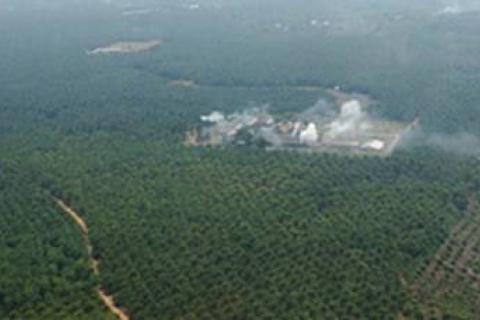The notion of High Conservation Value Forest was originally developed as a key principle within the revised standard of the Forest Stewardship Council issued in 1999. However guidance on how such forests should be identified was scarce and not well consolidated. In 2002, the conservation organisation WWF and the retail company IKEA, as part of a three-year cooperative programme, decided to fund a small project to develop guidance on how HCVF should be defined, identified and managed.
Other information
Open letter to the European Parliament, the European Commission, the governments and citizens of the European Union
Sawit Watch. Bogor, 26 January 2007
“During our time together, we heard directly from local community representatives from twelve provinces in Cambodia and also from other countries in the region about how their lives, livelihoods and environments are affected by large plantations in their respective areas.”
Peru is one of the few South American countries where large scale monoculture tree plantations have not yet been introduced; however the government is seeking to promote their expansion. In fact the country already has a “2005-2024 National Reforestation Plan” [National Plan] and also a “Law for the promotion of private investment in afforestation and/or reforestation” [Forestation Law], the basic tools to make tree plantations justifiable and feasible.
Today [December 12], hundreds of indigenous people from the seven Tupinikim and Guarani communities in the state of Espirito Santo, Brazil, occupied the harbor Portocel, from where the cellulose of the company Aracruz Celulose is being exported to Europe, the USA and Asia.
In response to timber industry efforts to expand the area of land under industrial timber plantations by 600,000 hectares, a Plantations Campaign was started by a small group of NGOs in South Africa in 1995.
“All villagers understand the need to protect the forest. We can't live without it.” The speaker is a villager from Dak Dam Commune in Mondulkiri province in the north-east of Cambodia. “Now our life is more difficult,” he said.
In July 2004, a business delegation from the Vietnam General Rubber Corporation visited Laos. At the time only a small area was planted with rubber in the south of Laos. “We can provide 50,000-100,000 hectares of land for Vietnam to grow rubber,” Thongloun Sisolit, the Lao Deputy Prime Minister, told the delegation.
It is almost certain that the Finnish public know little or nothing about Uruguayan history and on how this history relates to the current Metsa Botnia pulp mill project in this country. It is therefore important to explain that a military dictatorship ruled Uruguay from 1973 to 1984. During that period the military violated every possible human right and torture was common practice during those years. Thousands of Uruguayans –men and women- were tortured and imprisoned; scores of people were killed and “disappeared” and thousands had to live in exile during that period.
In Brazil, production through agriculture of a new energy model is present every day in the mass media and increasingly the development of this field is gaining social endorsement and economic justification. Rapidly, the use of land to produce food is sharing its space with the fuel production. This change in social perception is very evident in the repeated news features showing farmers and landowners as the new “oil field” owners.
In Cameroon, like in other African countries such as Ivory Coast or Ghana, the production of oil palm is distributed in 3 sectors: an agro-industrial sector, a village sector controlled by agro-industries, and a small-scale traditional sector.
Even though Indonesia and Malaysia hold a strong leadership position in the oil palm global market, the agro-industrial sector in Cameroon can rely on several advantages.
The Western world, and in particular the countries of the North, gave in to addiction to fossil fuels. This path has led to something that today nobody can doubt: climate change. Many solutions have been put forth to face it, but most of them let humanity’s race towards suicide continue as vigorously as before.

